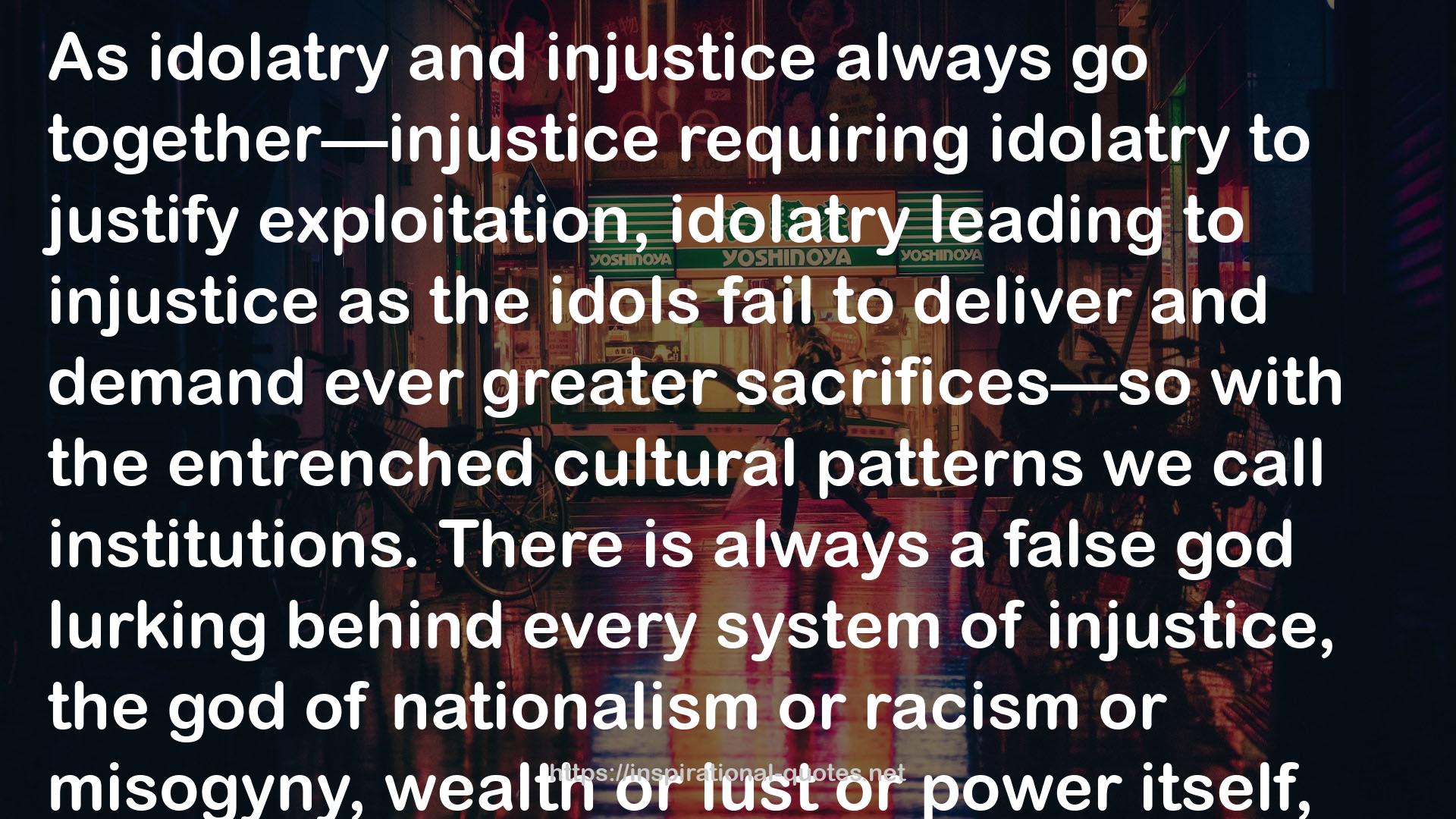" As idolatry and injustice always go together—injustice requiring idolatry to justify exploitation, idolatry leading to injustice as the idols fail to deliver and demand ever greater sacrifices—so with the entrenched cultural patterns we call institutions. There is always a false god lurking behind every system of injustice, the god of nationalism or racism or misogyny, wealth or lust or power itself, which promises godlike abilities to some at the expense of others. And every institution that sustains the worship of a false god ends up neglecting the most vulnerable. The little ones are sacrificed on the altar of the idols’ demands, not once but generation after generation, until we forget that there ever could have been a way for every person and every created thing to flourish. This, in a word, is sin, not a few isolated acts but a pattern embedded into every human act, even and maybe especially our well-intentioned acts. Only by seeing sin as an institutional reality—embedded in concrete artifacts, played out in terrifying large and visible arenas, dictating rules that enslave rather than set free, and turning naturally differentiated roles into oppressively rigid structures of status and privilege—can we understand the damage idolatry and injustice have done. "
― Andy Crouch , Playing God: Redeeming the Gift of Power
